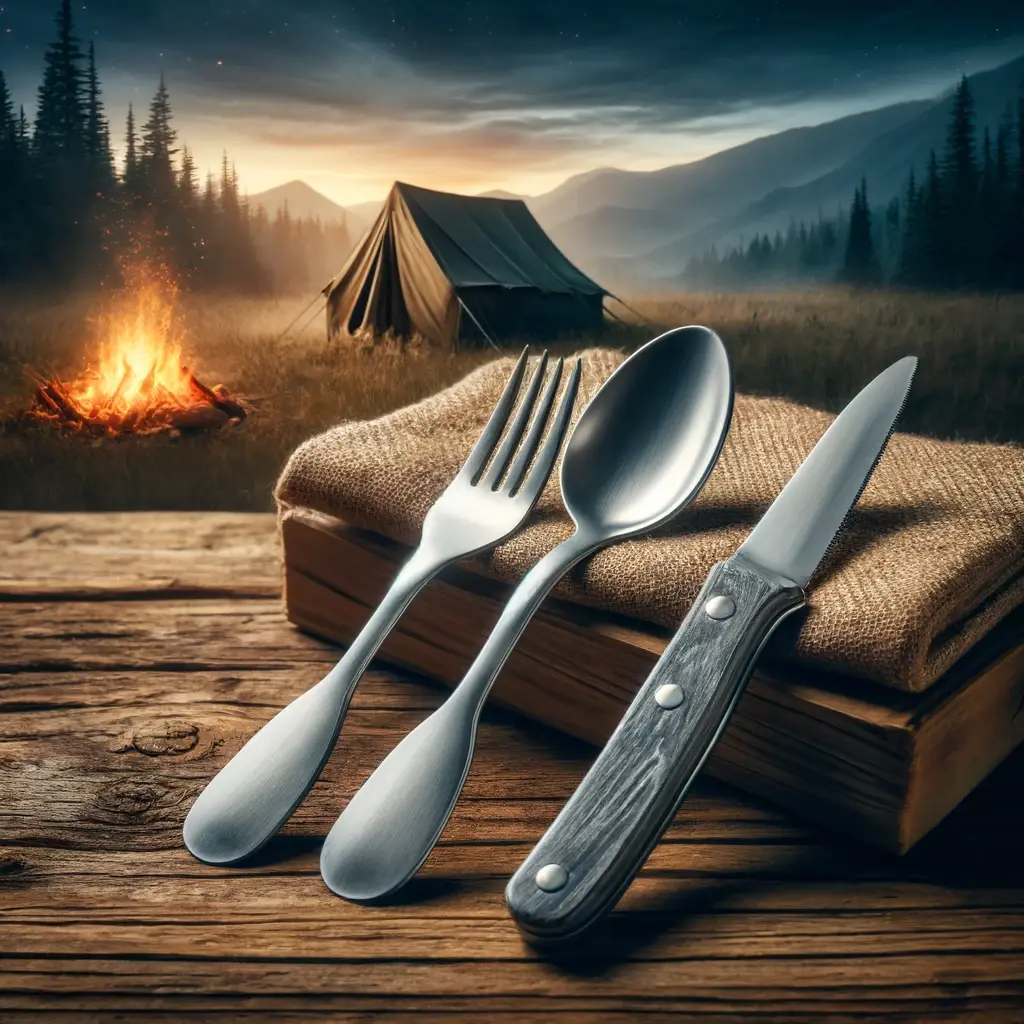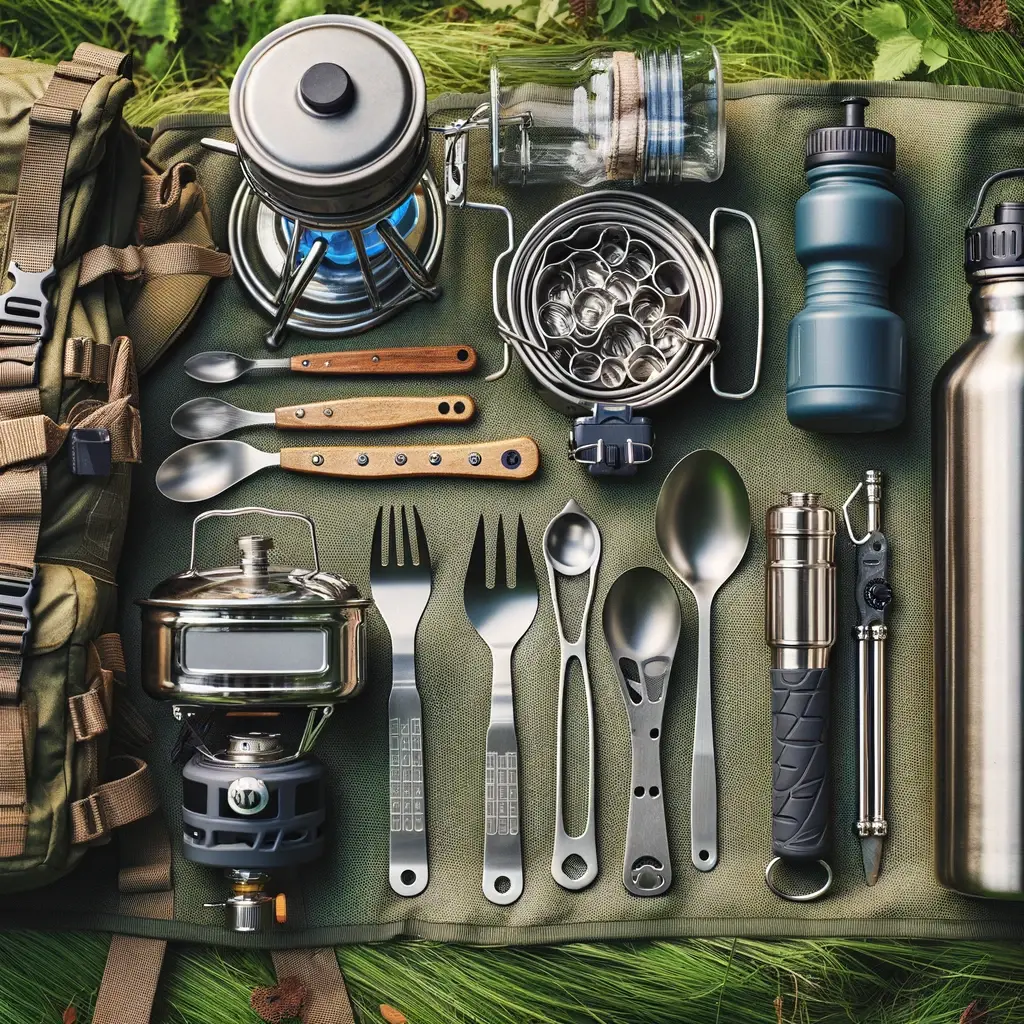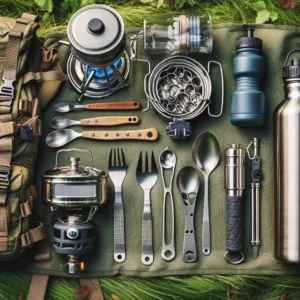Every piece of equipment in your pack is essential to your entire camping and mountaineering experience. Particularly, utensils have a big impact on how comfortable and convenient you are in the woods. Titanium and stainless steel are two of the most often used materials for camping utensils, and they each have special advantages. For your next outdoor adventure, we’ll examine titanium vs. stainless steel to help you make an informed choice.
Weight
For the avid camper or mountaineer, weight is a constant consideration. Every ounce counts, and this is where titanium truly shines. Titanium utensils are incredibly lightweight, almost 45% lighter than their stainless steel counterparts. This significant weight difference can make a huge impact on your pack, especially when you’re tackling long, grueling hikes or multi-day treks. When every gram matters, titanium can help you stay light on your feet and conserve energy for the trail ahead.
Durability
Both titanium and stainless steel are known for their durability, but they excel in different ways. Titanium is exceptionally strong and resistant to corrosion, making it an excellent choice for utensils that will face the elements. Its high strength-to-weight ratio means it can withstand significant stress without bending or breaking, perfect for the rugged conditions mountaineers often encounter. Stainless steel, while heavier, is extremely tough and resistant to scratches and dents. It can handle rough handling and still come out looking good, making it a reliable choice for both casual campers and hardcore adventurers.

Heat Conductivity
When it comes to cooking in the wild, heat conductivity matters. Titanium has lower thermal conductivity compared to stainless steel, meaning it doesn’t transfer heat as quickly. This can be a boon when you’re handling hot food or cooking directly over a campfire, as it helps prevent burns. On the other hand, stainless steel’s higher heat conductivity can provide more even cooking, which might be beneficial if you’re preparing a more complex meal. For simple tasks like boiling water or heating soup, titanium’s lower conductivity can be a safer and more comfortable choice.
Taste and Safety
Your outdoor culinary adventures should be about enjoying the taste of your food, not worrying about metallic flavors. Both titanium and stainless steel are non-toxic and safe for food contact, ensuring your meals taste as they should. They do not react with acidic or alkaline foods, so you can cook and eat with confidence. Titanium is particularly prized for being biocompatible, meaning it doesn’t cause adverse reactions in the human body, a reassuring fact for those with sensitivities. Stainless steel, widely used and trusted, also ensures safety and reliability.
Cost
While titanium offers many advantages, it comes at a higher price. The cost of raw materials and the manufacturing process make titanium utensils more expensive than stainless steel ones. However, for many campers and mountaineers, the investment is worth it for the weight savings and durability. If you’re on a tighter budget or just starting out, stainless steel utensils offer excellent performance at a more affordable price point. They provide a good balance of cost-effectiveness and durability, making them a great choice for many outdoor enthusiasts.

Versatility
Versatility is key when you’re out in the wild, and both materials have their strengths. Titanium utensils are favored by ultralight backpackers and mountaineers who prioritize minimal weight and maximum strength. They are also highly resistant to corrosion, ideal for use in wet or humid environments. Stainless steel utensils, with their robustness and ability to withstand rough handling, are versatile enough for a wide range of camping activities, from casual weekend trips to demanding expeditions.
Conclusion
Choosing between titanium and stainless steel utensils ultimately comes down to your personal needs and priorities. If minimizing weight is crucial and you’re prepared to invest in top-tier gear, titanium utensils are an outstanding choice. They offer unparalleled strength and lightness, perfect for the serious mountaineer or long-distance hiker. On the other hand, if you seek a durable, reliable, and cost-effective option, stainless steel utensils will serve you well. They are versatile, tough, and well-suited for a variety of camping scenarios.
Regardless of your choice, investing in high-quality camping utensils will enhance your outdoor experience, making mealtime a more enjoyable and stress-free part of your adventure. As you prepare for your next journey into the wild, consider what matters most to you—whether it’s shaving off extra ounces or ensuring your gear can handle the roughest conditions—and choose the material that best suits your needs.
Happy trails and bon appétit!

Enjoying your backpacking experience with quality gear is essential, but equally important is the responsibility to minimize your environmental footprint. Discover how you can tread lightly on nature, ensuring that your outdoor adventures leave no trace behind.












